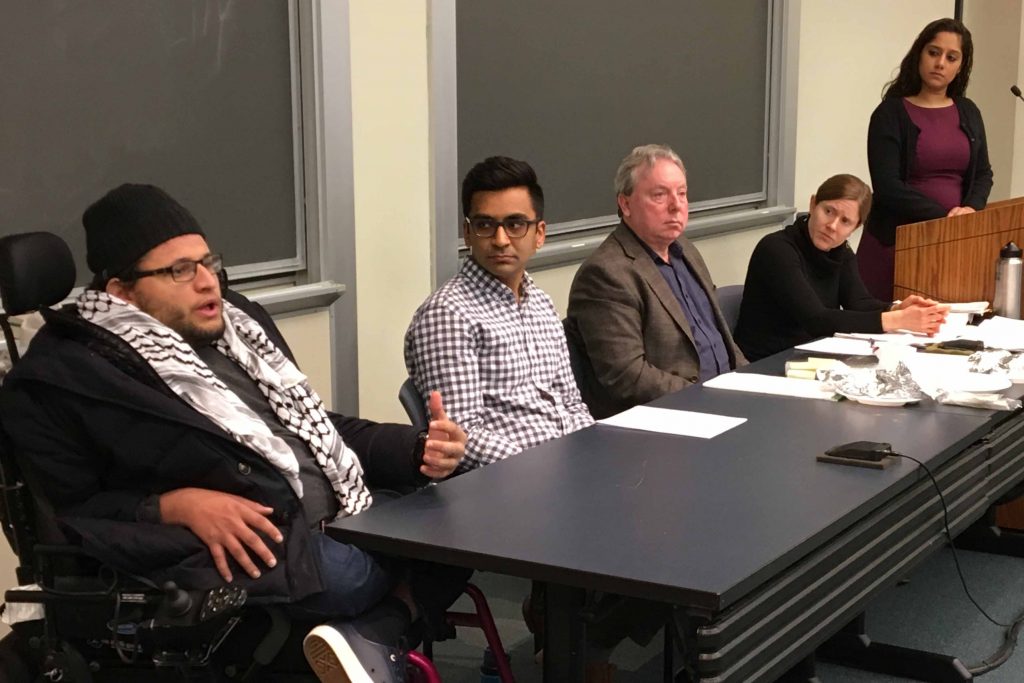Third-year law student Zain Ahmad’s parents emigrated from Pakistan to New Jersey and worked blue collar jobs to ensure a successful future for him and his sisters. They inspired him and other members of his family to pursue meaningful and productive careers, including in law, technology, and medicine. They also told him to remember the racism of the past, but to look to the future for change. “My parents taught me to be resilient and to channel my frustrations into something more productive,” he said.
Ahmad told this story on February 6 during a BC Law discussion organized by three student groups to provide perspective on President Trump’s executive order banning US entry to people from some Muslim-majority countries. Ahmad was joined on the panel by Mousa al Mosawy ’18 and two professors specializing in immigration law, Mary Holper ’03 and Daniel Kanstroom. Sahar Basaria ’18, president of the South Asian Law Students Association (SALSA), moderated.
The panel, which was sponsored by SALSA, of which Ahmad is a past president, the Middle Eastern Law Students Association, and the Law Student Association, occurred three days after a Seattle federal judge suspended Trump’s order.
Ahmad’s story painted a picture of the spirit and resilience of a Muslim immigrant family, and the value that families like his add to American society. It provided a backdrop as the panel moved on to a discussion of the executive order, and served as a reminder of the deep impact that the order has had on Muslims.
Holper provided an overview of the order’s key components, including the ban on travelers from seven countries and the 120-day refugee halt, and why a Seattle judge found that the order caused irreparable harm to the state. Kanstroom noted that the judge’s decision highlighted a remarkable confrontation between the judiciary and the executive branches, calling it a “tectonic conflict between two visions of the United States.”
Al Mosawy brought up his concerns about what’s next for immigration, pointing to new programs that effectively train racial profiling in government.
Tackling today’s immigration issues are not even about rights anymore, but about basic constitutional structure, Kanstroom said. He also argued that the fundamental questions of immigration law have not yet been resolved by the courts, as the judiciary usually only “flexes its muscles enough to get the executive to pull back.”
The event concluded with a conversation about ways that students can take action in light of these recent events. Al Mosawy highlighted the importance of protests, and said that personally being part of protests has given him the knowledge and comfort that there are people fighting alongside him.
More: BC Law Voices on Trump Ban
Pictured, left to right, students Mousa al Mosawy and Zain Ahmad, professors Daniel Kanstroom and Mary Holper, and moderator Sahar Basaria ’18


